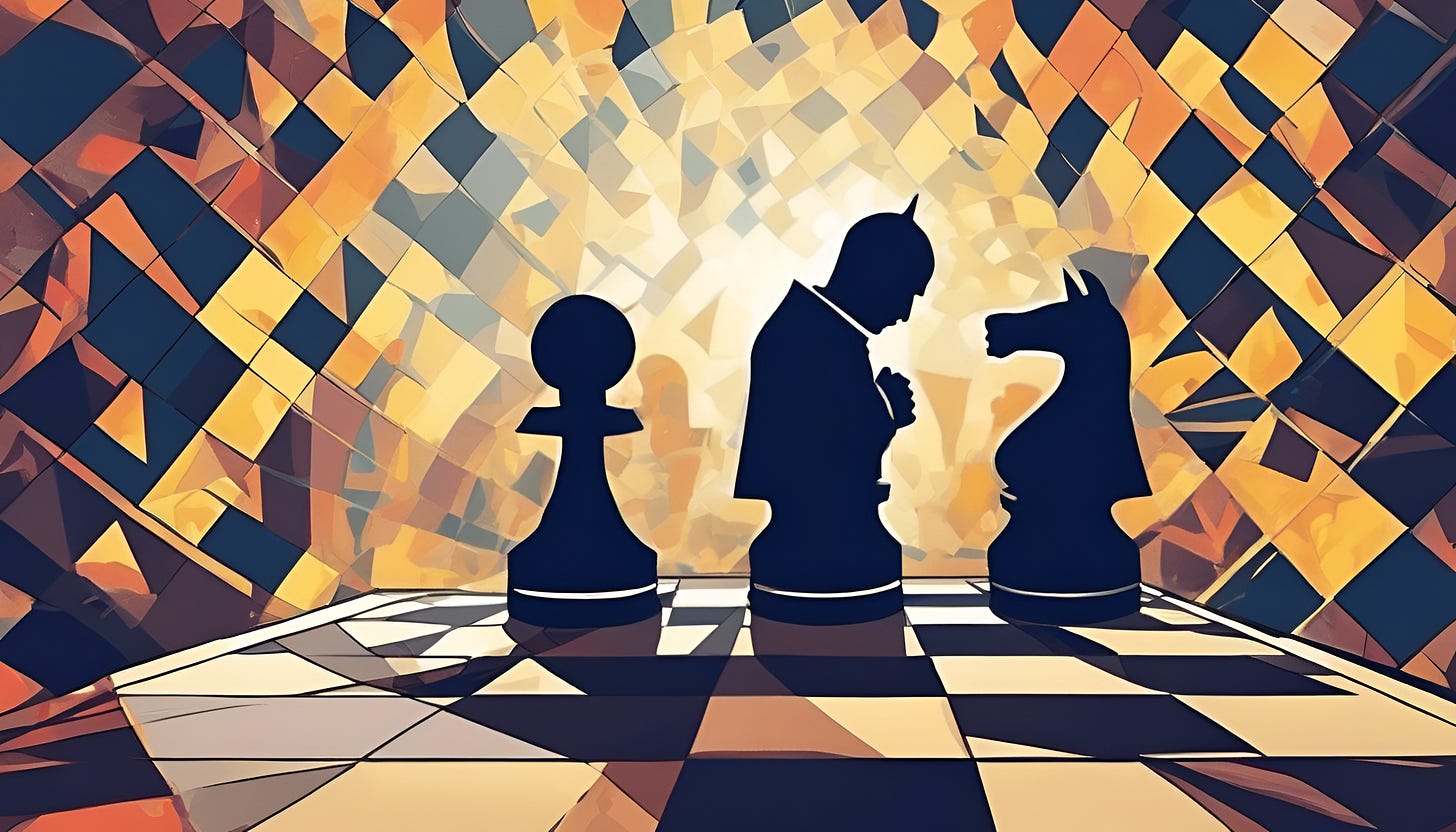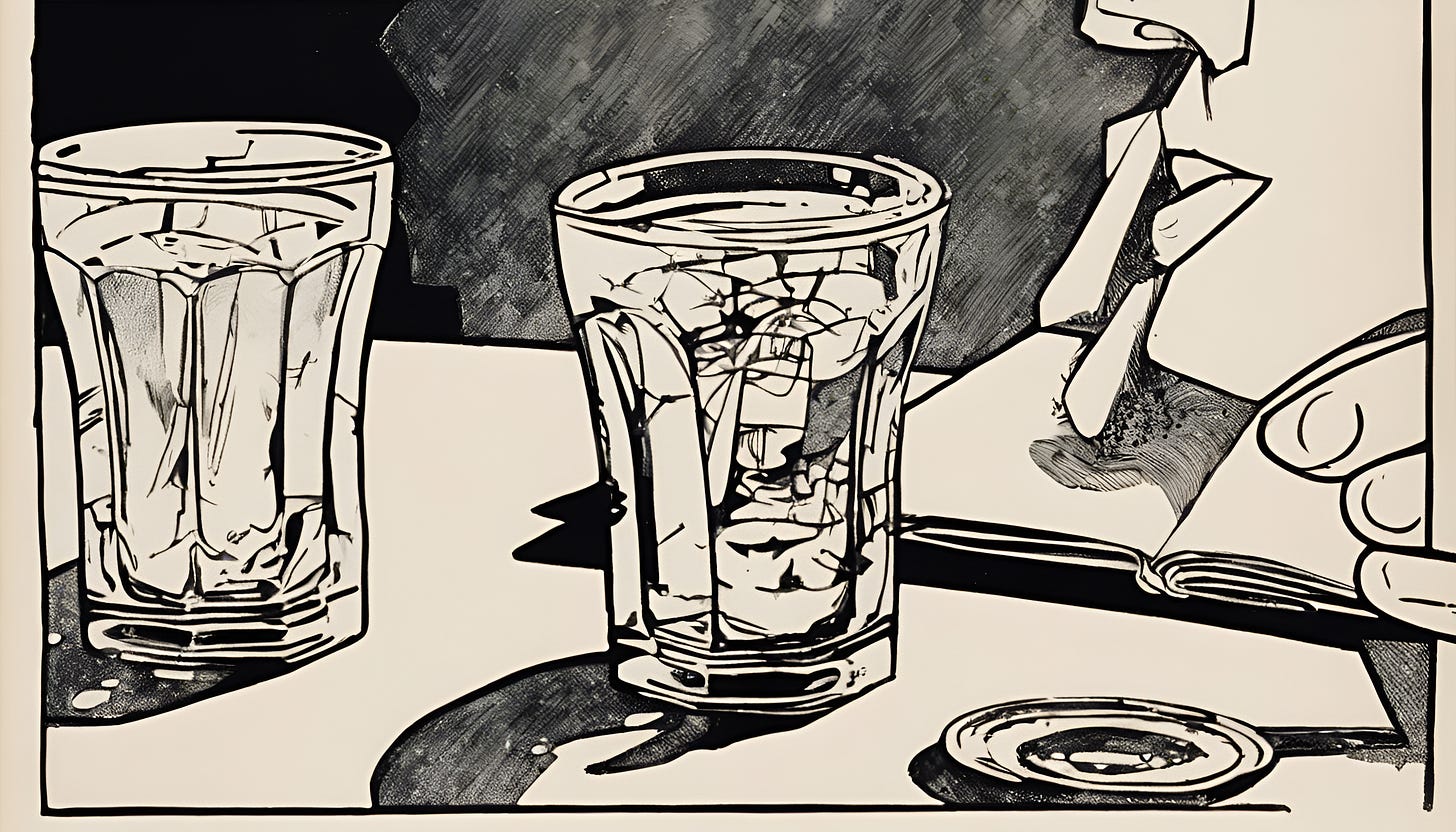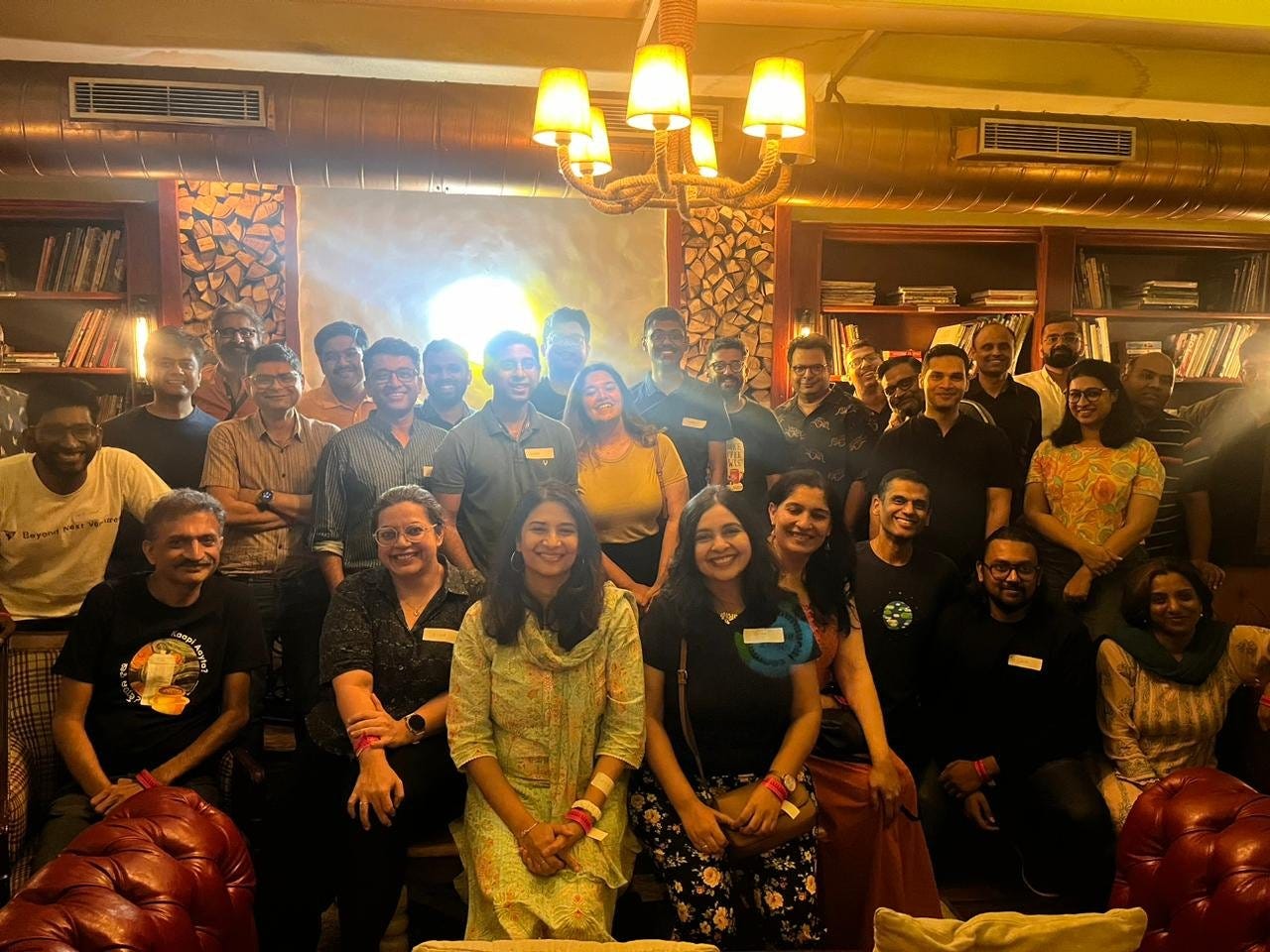The latest episode of Everything is Everything is about hiking, and in that Ajay said something that reminded me of a chess story.
The great Soviet chess player Tigran Petrosian was playing in a tournament. In one particular round, his opponent came to the board needing a draw. I forget who this was, or why he wanted a draw. Maybe it was the last round of a tiring interzonal with nothing at stake. Maybe he needed a draw to complete a GM norm. Anyway, he wanted a draw.
Soon after the game started, he leaned forward and said to Petrosian:
‘Are you playing to win?’
‘No.’
This gave our chess player hope.
‘Are you playing to draw. then.’
‘No.’
Our chess player was puzzled.
‘Why are you playing then?’
Petrosian leaned back, turned his quiet eyes towards our young friend, and said:
‘I’m playing to play.’
I first read this story maybe 35 years ago, a young chess player myself. I don’t think I understood it then. It was just a quaint anecdote.
But I get it now.
Growing older has taught me that goals can be toxic, and can eat you up from inside. If you play to win, you won’t always win, and again and again you will hurt yourself. If you play to play, you will always get what you want — the joy of the game itself.
There Is Love — and There Is Something More
In a recent newsletter post, the good Mohit Satyanand quoted from a book by Tom Hougaard called Best Loser Wins:
I am often told I am very disciplined, This is not true. The word itself is an oxymoron. Discipline implies the use of force and will. My action flows from a love of what I do. Those who are self-disciplined don’t think of themselves as self-disciplined. They are just expressing themselves in harmony with their own dreams and goals and desires.
Sometimes, playing to play flows from love. But this involves luck also. You have to have the time and space and resources to indulge in something you love. Not everyone has that. Can you play to play then?
Yesterday I recorded an episode of The Seen and the Unseen with the wonderful economist Sowmya Dhanaraj. Her father was a factory worker, and her mother sold tea at a stall near the highway. All day, from 6 am to 10 pm, Sowmya’s mom would stand at the stall serving tea. Her feet developed varicose veins, and the slightest injury could cause profuse bleeding that just would not stop. Sowmya got to spend personal time with her mom and dad only on Sunday mornings — the rest of the time, they were doing what they had to do.
Sowmya’s mom was surrounded by men all day, and that was a minefield by itself. You cannot be seen to be too friendly — and there is no point not being friendly. Later in life, she became a huge admirer of Jayalalitha. Now, we city slickers and economists and policy people may have all kinds of critiques of Jayalalitha — but Sowmya’s mom saw her as a woman who was always surrounded by men and ordering them about. This was enormous.
Just as ‘where we stand depends on where we sit',’ maybe who we look up to depends on where we sit as well.
The Jayalalitha bit is something Sowmya told me during lunch, and I’m quoting with permission. This next bit is in the episode. She said that her mother would put her heart into every cup of tea she made and every snack she served. She never just went through the motions. It meant something to her to see each customer take that sip and relax or smile or just take another sip. Any of us would think of that lady at a tea stall at a highway and think what a horrible job it was. If I was in her place, I would soon be a zombie, pouring tea and ticking boxes all day, hating life. But she did it with all her heart.
She was playing to play.
So yes, like in Petrosian and Hougaard’s case, your practice of playing to play can come from love. But sometimes it is more than that — it is an ethic you internalise. It is not about what you do, but about how you do. The love that is there is the love that you feed in.
(That episode with Sowmya will release in a few weeks, btw. It is tremendous. It reminded me why I do what I do.)
My String of Sausages
I would love to be able to do everything in my life just playing to play. Intentionality and mindfulness. But while it is not there in most areas of my life, I’ve been lucky enough to be able to find it in my work.
I’m in Bangalore now recording nine episode in ten days. (Sowmya was the seventh yesterday.) At one level, it is a grind. It is exhausting, I am invariably underslept, and as the days go on, I find myself getting lower and lower. I’ll be in my hotel room after the recording, too tired to socialise, needing to decompress for a while before going on to prep for the next episode. (Each recording lasts many hours, and the prep can be gruelling.)
But it is by far the most rewarding thing I’ve done in my life. Part of the reason for that is the process I have arrived at for doing the show. I don’t care about outcomes in terms of how people react or how much money I make. I do it for the doing. It helps that I love the conversation — slipping into that slow rhythm, sinking deep into life and ideas, paying attention to another person instead of being inside the turbulence of my own head.
And so, as if I’m snipping from a string of sausages, I snip-snip-snip till the trip is done and I’m back home with a bank of episodes. That gives me free time to write — but I never get the writing done.
Maybe I will this year if I write to write.
We’re Strangers — Even to Ourselves
One of the best things that has happened to me is the Clear Writing Community. This is an online group of people who have done my course, The Art of Clear Writing — 31 cohorts so far, over 2500 participants. Many of them are in Bengaluru, and I did a meetup with some of them last weekend.
Utsav Mamoria, who’s also just recorded an episode with me, organised it, and 35 people showed up in a library room booked out just for us. The conversation was great, though I felt guilty that I hardly spent any time with many people. However much you intend to circulate, you sit down at some table or the other and the conversation is great, and you’re Bengali therefore lazy, so the time spent gets warped. Maybe someone should come up with an algorithm to determine table circulation so everyone gets equal time with everyone else? But that would get too mechanistic — nah, that’s not the way to do it.
I have to say that in gatherings like this, I sometimes feel like a fraud. None of these people really knows me, I think. If they knew how messed up I was, they wouldn’t give me this much respect.
But everyone’s messed up — and we can never truly know one another. As Georges Simenon once said:
The fact that we are I don’t know how many millions of people, yet communication, complete communication, is completely impossible between two of those people, is to me one of the biggest tragic themes in the world.
Just as the way we view the world can be warped by the frames we adopt, the way we view each other can also be determined by early impressions. We start looking at each other in a particular way — and there is a path dependence to that impression. Every new piece of information about us must be interpreted to fix the picture that is already there.
Sometimes that first picture is idealised. Sometimes, you misjudge someone because of something from your own past. Sometimes we project what we want at that time onto that person. We are limited by what we know and understand about the world, and we are always wrong. We must blunder through life knowing nobody, not even ourselves, and never being known either.
On that cheerful note, I will shift to prepping for my next recording. Meanwhile, here’s the latest episode of Everything is Everything, which you will love if you liked this post.
The Hiking Episode | Episode 35 | Everything is Everything
***
Illlustrations by Simahina.
***







Sometimes that first picture is idealised. Sometimes, you misjudge someone because of something from your own past. Sometimes we project what we want at that time onto that person. We are limited by what we know and understand about the world, and we are always wrong. We must blunder through life knowing nobody, not even ourselves, and never being known either.
Amit Varma, I LOVE YOU.
One of the biggest lies that we have been made to believe is that every life needs to have a purpose. And so we spend our lives looking for that purpose, instead of letting the purpose come to us. Maybe it’s the paucity of time given by just this one lifetime. I wonder sometimes if we knew definitely that there were more lives, and there would be more chances, would the world be a better place filled with happier humans?